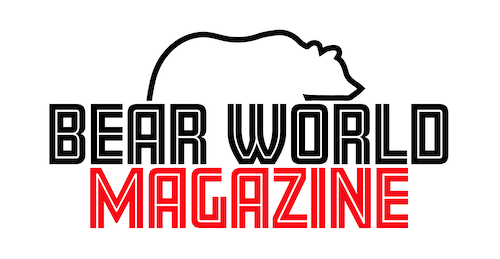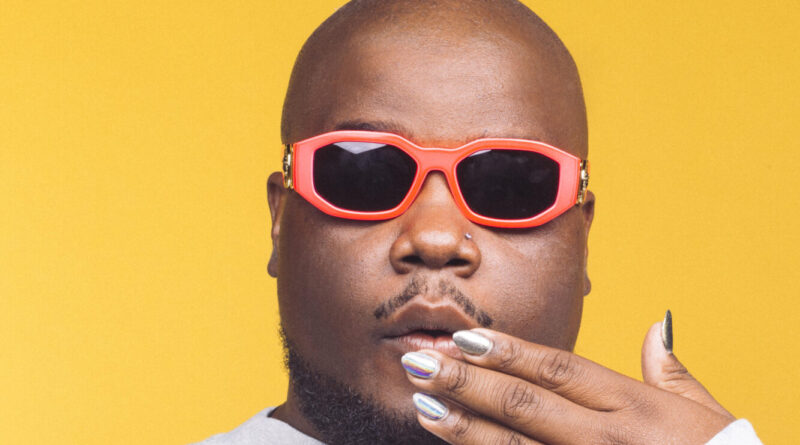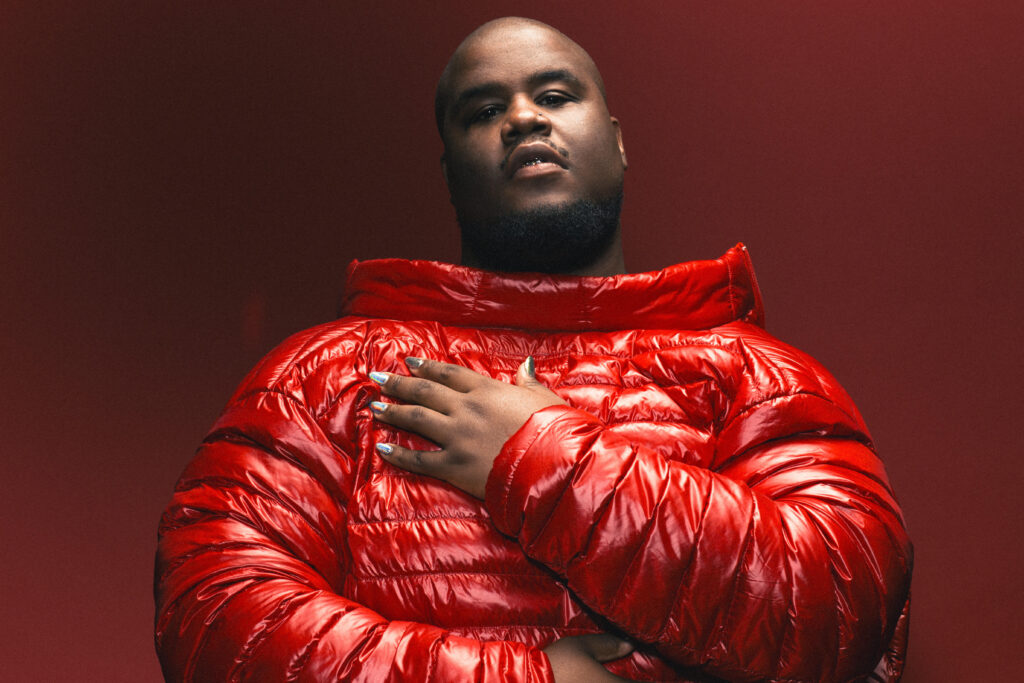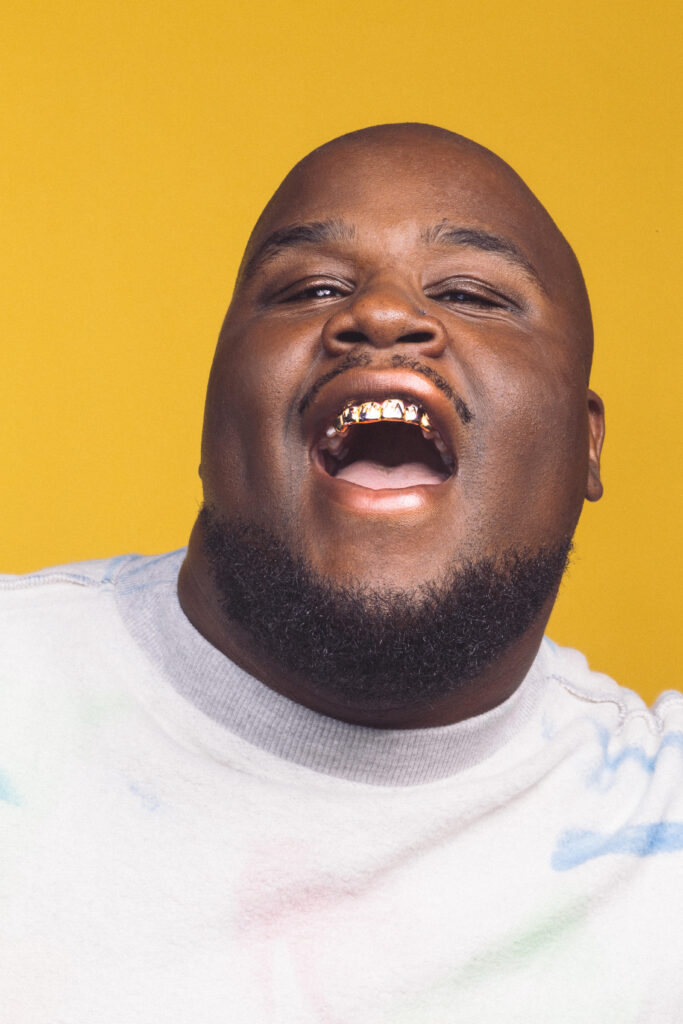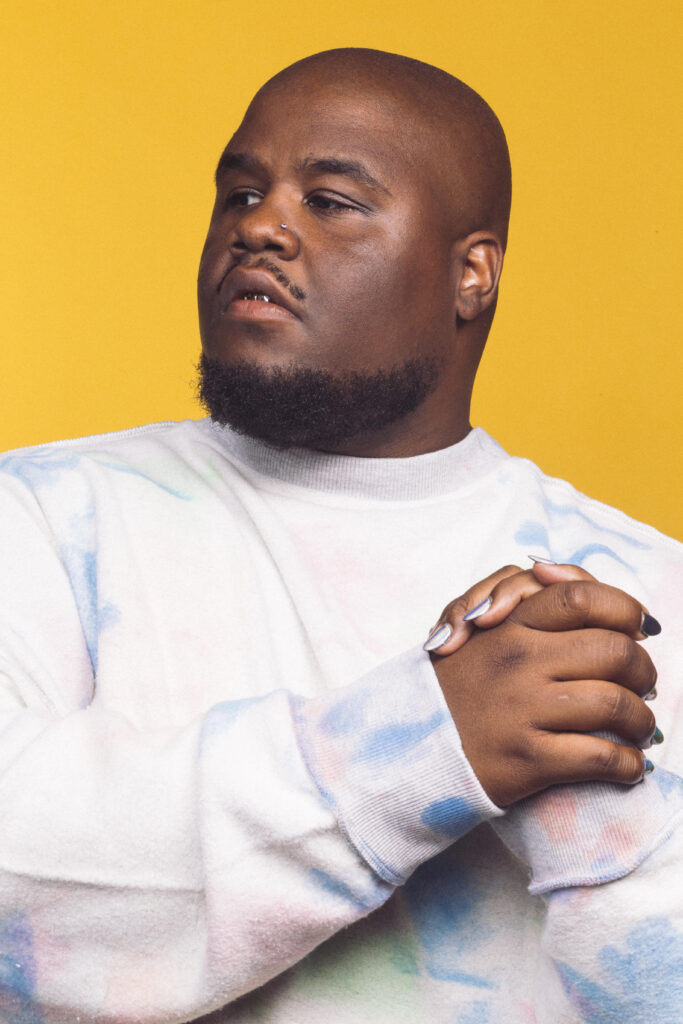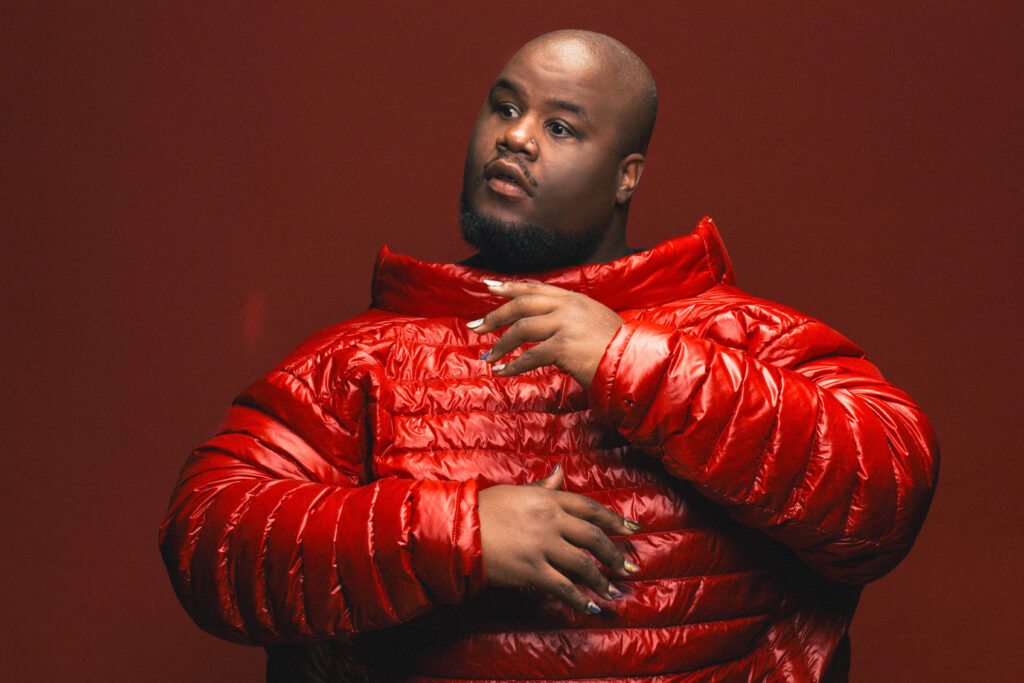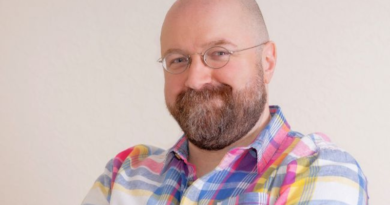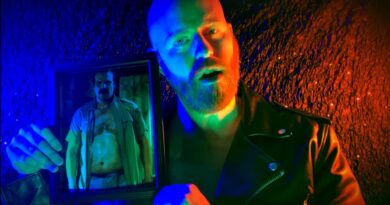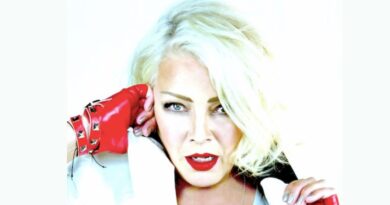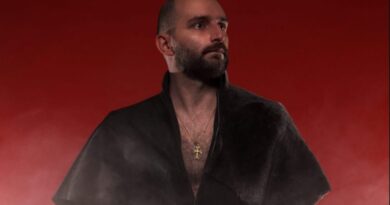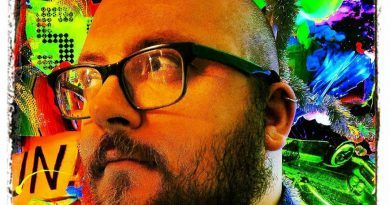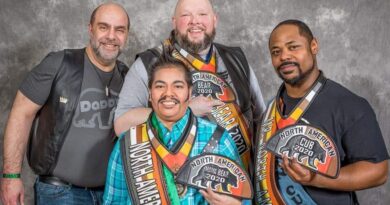Queer rapper DDm talks new music, Netflix documentary, celebrating both Pride and Juneteenth
When you think of queer Black hip-hop artists, certain words come to mind: bold, innovative, stylish and confident. All of these words can be used to describe Baltimore’s own DDm.
Hailing from the amazingly unique and often misunderstood city of Baltimore, DDm crafted a lane for himself in the city’s Hip-Hop scene. Hip-hop has always had a queer problem, but DDm doesn’t seem to care. Coupling gold fronts, kaftans and colorful acrylics with some of the most creative and hard-hitting lyrics in the queer rap scene, DDm strikes gold with every new release.
Last year, we spoke to DDm after the release of his critically-acclaimed EP The Ballad of Omar, a hard-hitting and honest portrait of growing up Black and queer in the innercity. The EP, which was released at the height of the coronavirus pandemic, took on a much more gritty and dark tone than his previously released album, the wonderfully flamboyant and bop-filled Beautiful Gowns. But DDm had something to say, and The Ballad of Omar seemed cathartic in a way.
Just a few days ago, DDm, who shares his birth name Emmanuel, took to Instagram to share his thoughts on the project a year after its release. “A year ago. This project served as an origin story of my life to a certain degree,” he writes.
“Released during the peak of the pandemic. I revisited it this morning and am still very proud of this piece. I’m happy to have grown from it to now live my life looking towards the future. On my upcoming project I am happy to be able to showcase myself without being a character or caricature of myself. I’m still growing. But I’m now growing as Emmanuel and nobody else. See y’all in the fall. Until then stream #TheBalladOfOmar and #BeautifulGowns on all platforms.”
The past year was obviously something none of us could have imagined. But, it didn’t seem to slow DDm down one bit. And, even if it did, we didn’t notice. Just months after releasing a critically-acclaimed album, DDm slayed us with the release of the club anthem “Stop My Bag”, followed by the stylish music video in December.
Along with releasing music, DDm has also been featured in two documentaries this year: Dark City Beneath the Beat on Netflix, and Children of Paris, which is currently playing multiple festivals. Dark City, which was directed by Baltimore-based rapper, artist and director TT the Artist, is a musical documentary reimagining the narrative of Baltimore City through its home grown sound and dance known as Baltimore Club Music, a genre that DDm exemplifies a lot in his music.
Children of Paris is a vignette style documentary short chronicling the careers of Baltimore-based hip-hop artists Kotic Couture and DDm, and pop artist Rovo Monty, three Black LGBTQ+ performers who hustle to bridge the gap between the underground scene and mainstream stardom. The film asks the question: Why is the hip-hop/pop mainstream industry still dragging its feet on a real push to back Black LGBTQ+ artists?
We recently had a quick chat with DDm to discuss his involvement with Dark City and Children Of Paris, to get the tea on his new projects and to hear his thoughts on Pride and Juneteenth.
Kyle Jackson: Can you tell us a bit about Children of Paris and where we can catch it if we haven’t seen it yet?
DDm: Children Of Paris is a documentary that was shot about three years ago that I was featured in. It covers myself, my friend Rovo and Kotic Couture, who is the main subject.
It actually started as their film, but the director expanded it once she saw our friendship. It shows the obstacles we face as Black LGBTQ artists and how we maneuver around that. Right now, it’s playing festivals. We haven’t gotten word on a home video release yet.
KJ: Can you tell us a little bit about your involvement with Dark City Beneath the Beat on Netflix?
DDm: With Dark City, it was the easiest process ever. Me and TT the Artist, the director, have been friends for years, so she called me and told me to write a song for the soundtrack.
The next thing I know, she had an entire scene planned and we shot it in about three hours. It’s a beautiful film about the arts scene in Baltimore and Baltimore Club Music inspires it. The fact that Netflix and Issa Rae picked it up was the ultimate icing on the cake.
KJ: What’s next for DDm? What projects do you have coming up?
DDm: I’m currently finishing up my new project for the fall called Kayfabe. It took me a year to make, and it’s probably the longest I’ve taken to do a project. We shoot the first two visuals in July.
It totally ups the ante on my artistry, and is probably my favorite body of work so far. Me and music producer Mateyo really locked in and had a synergy while creating this piece. I can’t wait to see what the public thinks about it. I love it!
KJ: As a Black queer artist, what are your thoughts on celebrating LGBTQ Pride and Juneteeth in the same month?
DDm: There was a time when I was terribly upset with Black people in my community about how I was treated when I came out the closet. I spent several years distancing myself and flying rainbow flags. Then… gay marriage was legalized. Almost overnight, I watched the ‘we are family’ shit go right out the window. I found some of the same white men who had been calling me ‘darling’ before at clubs like Grand Central in Baltimore, were now giving me the side eye once they got their rights.
I then realized that the saying ‘the enemy of my enemy is my friend’ applies when only both you and your ‘ally’ are oppressed. What I forgot was that, in America even though these were gay men, they were white men first. That meant that even though they were low on the social ranking, their humanity was still more valuable than mine. Once these same men were able to put their partners on their health insurance and pass down that money, we weren’t as useful anymore.
I also began to notice gay clubs start to disappear around the city, and by the time the Black queer community realized how important spaces like Club Bunns and The Paradox were, it was too late. Even at Pride now it’s different. What was usually held in Mt. Vernon (the gayborhood of Baltimore), had now been moved to Station North due to ‘noise complaints’. The noise was always there, it’s just that now instead of some washed up disco diva, the noise was Rick Ross and 2 Chainz.
I am telling this truth because it taught me to never abandon your people because they are all you have. If you’re going to give someone the benefit of the doubt, give it to your people. If you are going to invest, invest in your people. They’re not going to always get it right. They are almost certainly going to fuck up. But there’s nothing quite like your own. Black people are not monolithic, so we should not be hammered with a phalanx of stereotypes by our own people.
For me, as a Black artist who is also queer, I cannot ignore or celebrate one more than the other. It would be like denying a piece of myself. I’m also happy that Juneteenth is now getting more attention on a mainstream level. That makes me smile a lot.
Follow DDm on Instagram, Facebook, Twitter, Youtube and Soundcloud.
